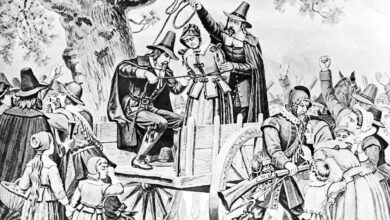Beyond the Known: The Night Uranus Entered Our World
In the vast expanse of our solar system, the discovery of Uranus on March 13, 1781, stands as a testament to human curiosity and the desire to understand the universe. This momentous event, credited to the German-born British astronomer William Herschel, expanded our knowledge of the solar system and marked the first discovery of a planet using a telescope. Uranus’s identification challenged astronomical theories and paved the way for further exploration and discovery.
Before the discovery of Uranus, the known solar system was thought to end with Saturn. Observations of the heavens were limited to the naked eye, and the idea of planets beyond Saturn was speculative at best. However, the advancement of telescope technology in the 17th and 18th centuries allowed astronomers to gaze deeper into the cosmos than ever before.
William Herschel, an accomplished musician turned astronomer, was conducting a survey of the night sky from his garden in Bath, England, when he observed an object that appeared markedly different from the stars. Initially mistaking it for a comet, Herschel noted its unusual disk-like appearance and slow movement across the sky. After further observation and calculations by Herschel and other astronomers of the time, including Nevil Maskelyne, the Astronomer Royal, it became clear that the object was not a comet but a new planet orbiting beyond Saturn.
The discovery of Uranus was revolutionary for several reasons. It was the first planet found with a telescope, highlighting the importance of technological innovation in advancing scientific knowledge. Moreover, Uranus’s orbit significantly expanded the known boundaries of the solar system, challenging astronomers to reconsider their models of the cosmos.
Herschel’s discovery also profoundly impacted the naming conventions for planets. While Herschel initially proposed naming the new planet “Georgium Sidus” (George’s Star) in honour of his patron, King George III of Britain, this suggestion was not widely accepted outside Britain. Ultimately, the name Uranus, proposed by German astronomer Johann Bode and derived from ancient Greek mythology, was adopted internationally. This choice set a precedent for naming planets after mythological figures, a convention that continues today.
The discovery of Uranus led to further astronomical milestones, including the identification of its moons and the eventual discovery of Neptune, prompted by irregularities in Uranus’s orbit. These achievements underscored the dynamic nature of the solar system and the ongoing quest to understand our place in the universe.
Today, the discovery of Uranus is celebrated as a pivotal moment in the history of astronomy, a reminder of the endless possibilities that await us in exploring the cosmos. It signifies a breakthrough in our understanding of the solar system and the unyielding spirit of inquiry that drives scientific discovery.
As we commemorate the day William Herschel expanded our celestial horizons, we are reminded of the boundless curiosity that propels humanity to explore the unknown, seeking answers to the mysteries of the universe.





